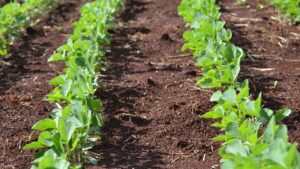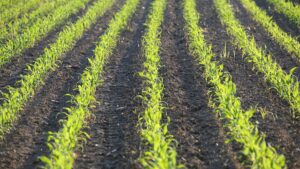NATIONAL
CFIA STREAMLINES REGISTRATION PROCESS FOR SOY AND FORAGE VARIETIES
Regulatory changes that streamline the variety registration process for new oilseed soybean and forage varieties are now in effect. The amendments provide a more efficient approval process and support faster access to innovative varieties that are in global demand. New oilseed soybean and forage crop varieties can now be expedited. Specifically, pre-registration testing and merit assessments will no longer be required. All relevant safety assessments will continue. The amendments included moving oilseed soybean and forage crop varieties from Part I to Part III of Schedule III. The regulatory changes have been published in Canada Gazette, Part II.
AGRICULTURAL GROWTH ACT REACHES SECOND READING
Canada’s farming industry is one step closer to a broad suite of new tools that federal agriculture officials say will help farmers remain competitive in the global marketplace and grow their markets at home. Agriculture Minister Gerry Ritz spoke about the benefits of the Agricultural Growth Act during the second reading in the House of Commons in Ottawa. According to Ritz, the bill signifies a key milestone for Canada’s agricultural sector by improving access to the latest technologies and modernizing nine statutes that regulate agriculture. Some of the key improvements listed by the government include stronger intellectual property rights for plant varieties, which will enhance farmers’ access to new varieties, and more flexible farmer payment programs. Entrenched in the Agricultural Growth Act is the right of farmers to save, condition and re-plant seed that is personally saved from crops grown on their land.
ENLIST CORN COMES TO CANADA
Dow AgroSciences announced that it will conduct a managed and limited introduction of Enlist corn in Canada for the 2014 growing season. The company’s Canada Field Forward program will provide growers an exclusive opportunity to experience the company’s newest technologies before they are widely available. Canadian regulators approved the Enlist genetic trait for corn and soybeans in 2012 and the Enlist Duo herbicide was approved in 2013. The two products are designed to be used together, as the biotech corn is able to withstand sprays of the Enlist Duo herbicide, making it easier to kill weeds, according to Dow. The company anticipates the commercial launch of Enlist corn in Canada in 2015 after regulatory approvals in additional import geographies are secured. Enlist crops and the herbicide are still under consideration by U.S. regulators.
NEW BIOINSECTICIDE SUBMITTED FOR REGISTRATION
Marrone Bio Innovations Inc., a global provider of bio-based pest management and plant health products, has submitted Venerate bioinsecticide for registration in Canada and Mexico. The new, broad-spectrum bioinsecticide features novel modes of action and is active against a wide array of chewing and sucking insects and mites. The product is non-toxic to fish, birds and most beneficial insects including honeybees. According to the company, Venerate also has the advantage of a zero-day pre-harvest interval and an exemption from maximum residue level tolerances — a measure of pesticide residue limits that must be met for most food crop exports. It is labelled for a wide array of crops and can be used in conventional and organic systems.
NEW TOLERANCES FOR ERGOT, SCLEROTINIA AND FUSARIUM
Updated tolerances for ergot and sclerotinia for most classes of wheat took effect in Eastern Canada July 1, and will take effect in Western Canada Aug. 1. New tolerances for fusarium-damaged kernels will also take effect for eastern and western food barley. The grade schedule for Canada eastern oats will be updated to more closely match that of Canada western oats. These changes are based on recommendations made to the Canadian Grain Commission by the Western Standards Committee and the Eastern Standards Committee. “While sclerotinia is not toxic like ergot, we keep the tolerances the same for both because sclerotinia is very similar in appearance to ergot,” says Daryl Beswitherick, program manager of quality assurance standards for the CGC. “By keeping tolerances the same for both of these grading factors, we can mitigate risk caused by any potential confusion between the two.”
NEW REPORT ON THE MODERNIZATION OF CANADA’S VARIETY REGISTRATION SYSTEM
The Government of Canada committed to a transformational shift in Canadian agricultural policy, with a renewed emphasis on research and innovation, competitiveness and market development. The government will continue efforts to reduce unnecessary regulatory burdens as part of its commitment to a science-based regulatory framework that promotes research and innovation and allows for an efficient, transparent and predictable interaction between government and industry. In 2013, Agriculture and Agri-Food Canada (AAFC), the Canadian Food Inspection Agency (CFIA) and the Canadian Grain Commission (CGC) initiated a review of the crop variety registration system. An options paper was posted on the AAFC website that described the current variety registration system in Canada and outlined four potential options for modernizing and streamlining the system. Stakeholders were then asked for feedback on the options. Responses came from producers, seed companies, farm organizations, industry associations, crop marketers/handlers and exporters. Overall, 57 per cent of respondents supported varying options for reform. AAFC, CFIA and CGC are reviewing these results and will notify all stakeholders from Canada’s crop production sector in a timely manner of any changes that could have an impact on Canada’s variety registration system.
INTERNATIONAL
CANADA-KOREA FREE TRADE AGREEMENT
Canada and the Republic of Korea have concluded negotiations for a bilateral free trade agreement that will boost trade and investment ties between the two countries, creating jobs and opportunities for Canadians in every region of the country. The Canada-Korea Free Trade Agreement, Canada’s first with an Asian market, will benefit a wide range of sectors, including industrial goods, agricultural and agri-food products, wine and spirits, fish and seafood, and wood and forestry products. The federal government says the agreement serves as a gateway to Asia for Canadian businesses and workers, who are looking to enhance their global competitiveness. It also levels the playing field for Canadian companies competing with Korea’s other trading partners, such as the United States and the European Union, which already have free trade agreements with Korea. The FTA eliminates tariffs and reduces non-tariff measures that hinder market access for Canadian exporters and investors in Korea, bringing transparency and predictability to the business environment. Once the FTA is fully implemented, Korea will remove duties on 98.2 per cent of its tariff lines, covering almost all of Canada’s imports.
EU MEMBER COUNTRIES TO DECIDE GM POLICY
After years of discussion, a recently-adopted accord by the European Union will allow member countries to make their own decisions on whether or not to allow genetically modified crops. “All member states, with the exception of Belgium and Luxembourg, have given their agreement,” said Greek Agriculture Minister Ioannis Maniatis after a meeting with his EU colleagues in the middle of June. The accord gives individual EU states the right to ban GM crops even if they have already won clearance on health and safety grounds at the EU level. “The new system guarantees that the member states have a choice,” added French Environment Minister Segolene Royal. At the time of printing, the accord will now proceed to the European Parliament for approval.














